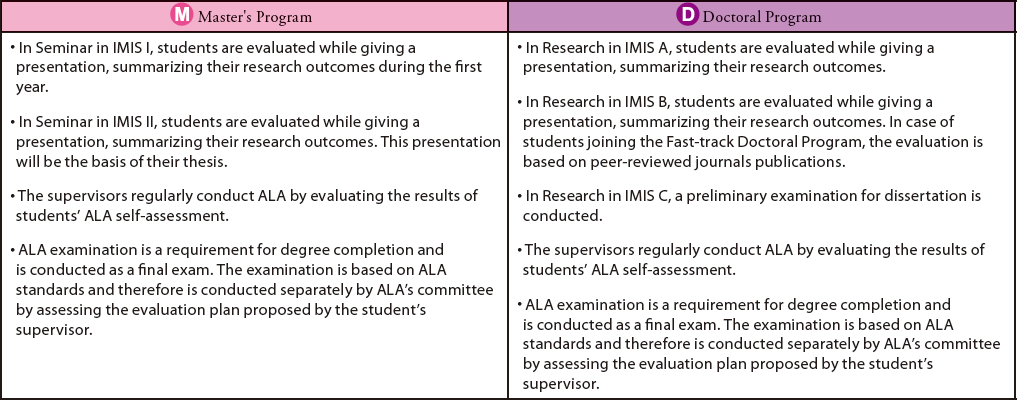- Overview
- Organization
Master's and Doctoral Degree Programs
Related Centers
Relevant Undergraduate Schools
- Faculty
- Education
- Research
- Job Opportunities
Intelligent and Mechanical Interaction Systems
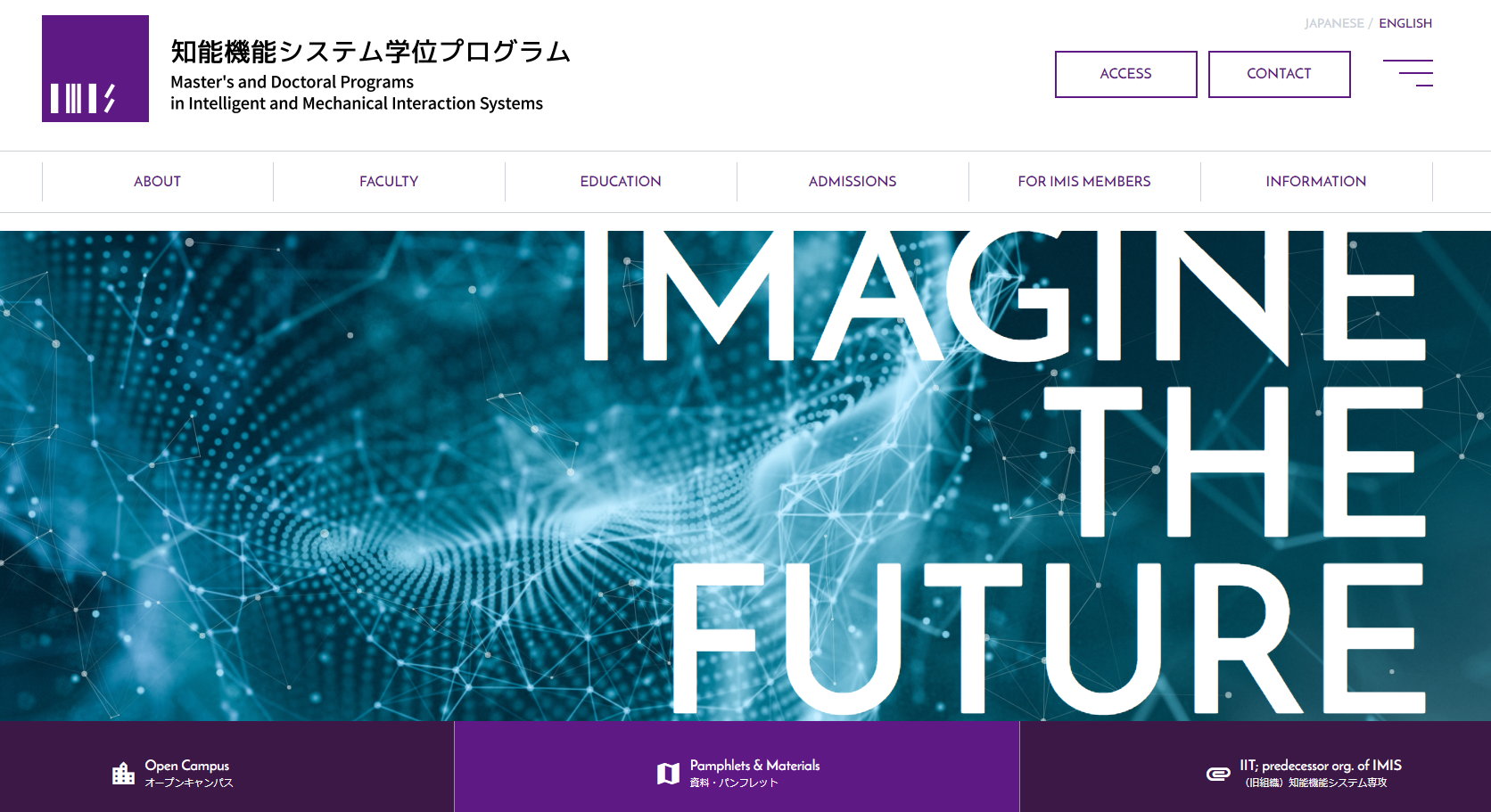
Master’s and Doctoral Programs in Intelligent and Mechanical Interaction Systems
For more details please visit the degree program’s website: Master’s and Doctoral Programs in Intelligent and Mechanical Interaction System
TOP Faculty Diploma Policy Curriculum Policy Admission Policy
Educational Aims of the Degree Programs
![]() In the Master’s Program, we aim to foster highly skilled professionals who can identify and solve problems from broad perspectives, equipped with the following attributes:
In the Master’s Program, we aim to foster highly skilled professionals who can identify and solve problems from broad perspectives, equipped with the following attributes:
- Fundamental knowledge and high ethical standards in the field of engineering
- Specialized knowledge and skills relating to intelligent and mechanical interaction systems*
- Research skills
![]() In the Doctoral Program, we aim to foster researchers and highly skilled professionals who can identify and solve crucial problems from broad perspectives, equipped with the following attributes:
In the Doctoral Program, we aim to foster researchers and highly skilled professionals who can identify and solve crucial problems from broad perspectives, equipped with the following attributes:
- Broad knowledge and sound ethics in the field of engineering
- Advanced specialized knowledge and skills relating to Intelligent and Mechanical Interaction Systems*
- Research skills enhanced by creativity
*Intelligent and Mechanical Interaction Systems (IMIS) are engineering systems which are developed based on mathematical models that represent complex human, social, and natural phenomena and theories from disciplines such as mathematics, physics, and informatics. Such systems contribute to society through the cooperation of elements with various functions.
Number of Students to be Admitted
Masterʼs Program : 100
Doctoral Program : 16
Course Models
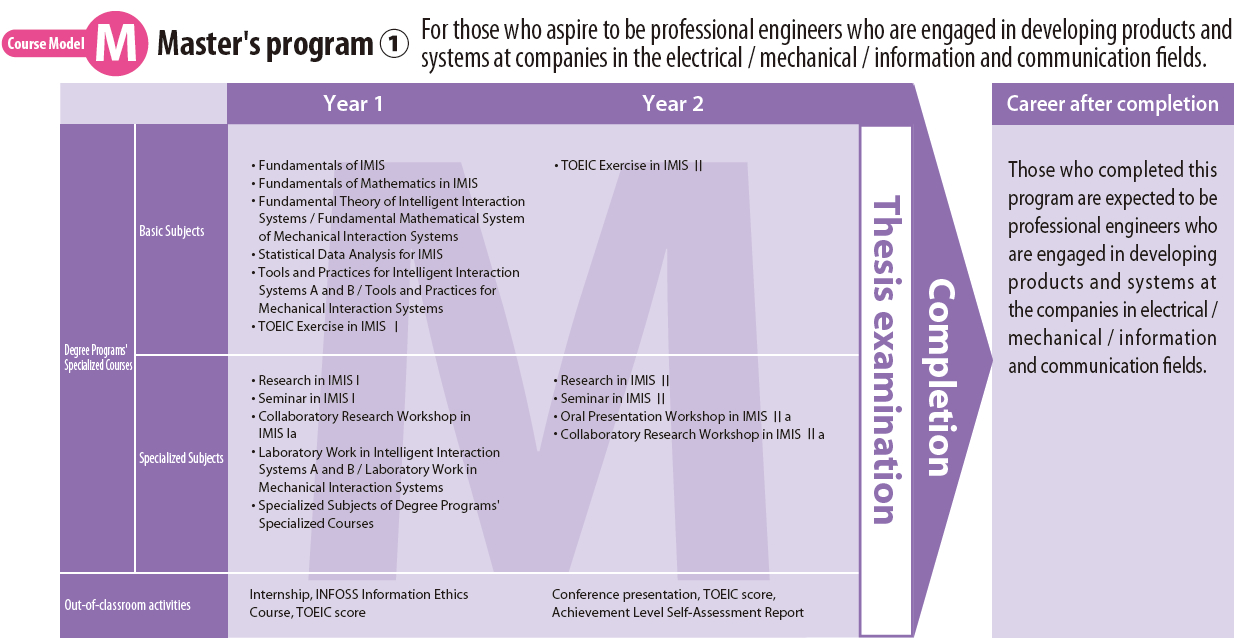
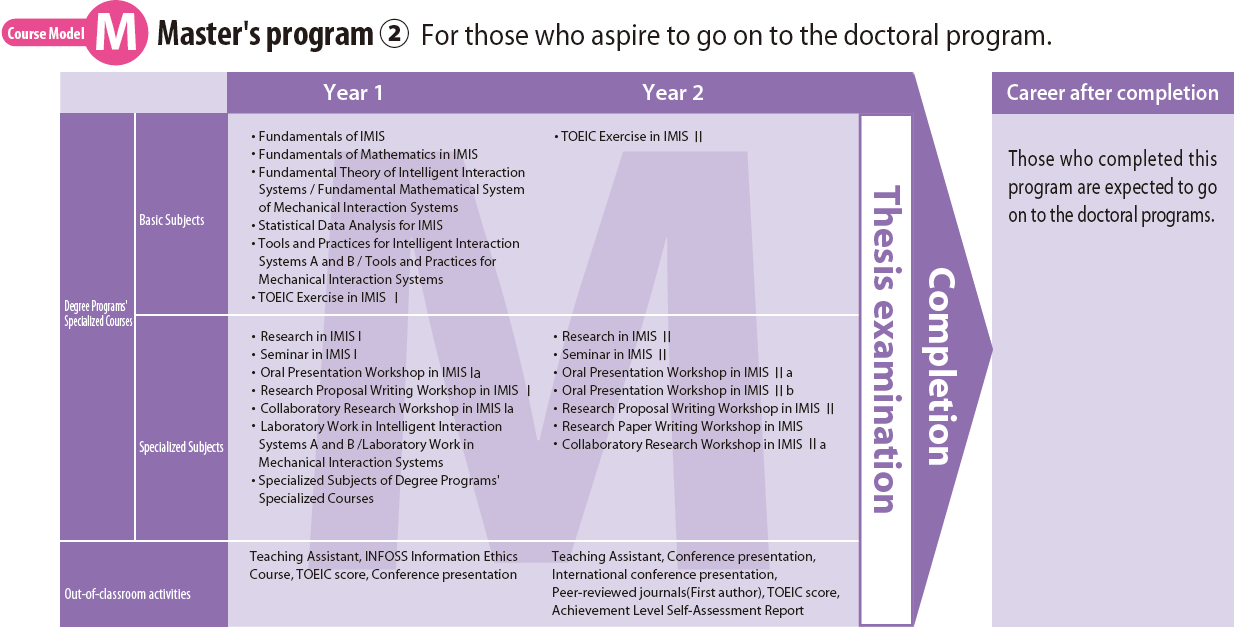
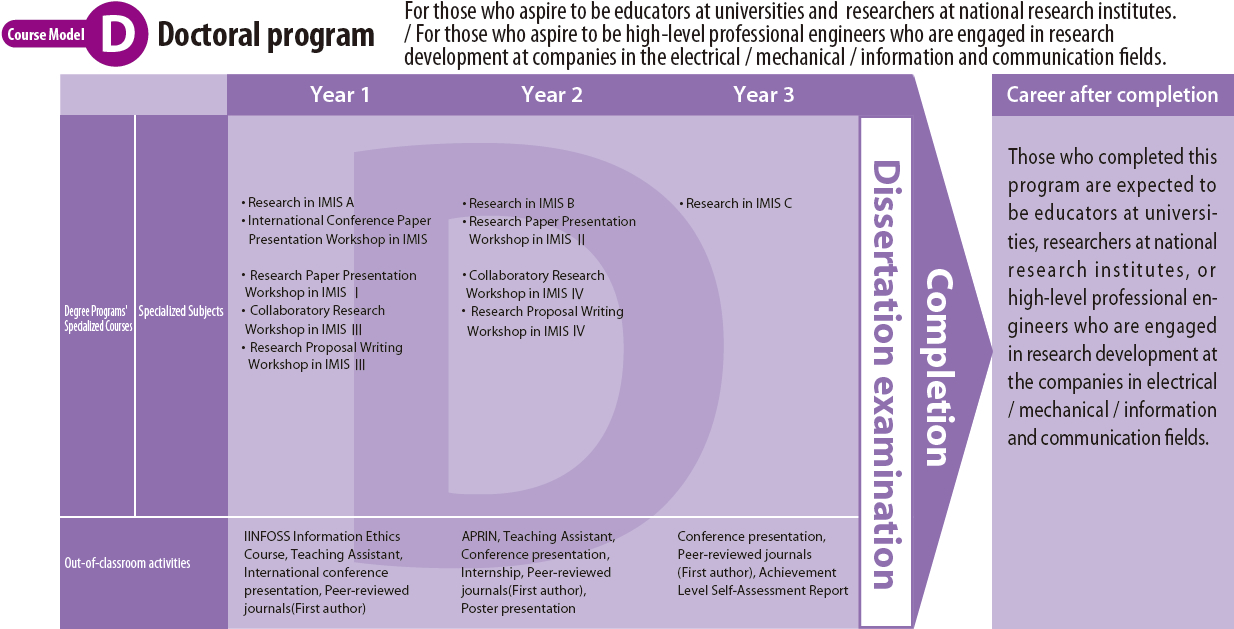
Features of the Degree Programs
In order to provide students with systematic education, it is necessary to strengthen the systematic development of education in line with the purpose of the curriculum-based graduate school system, which awards a specific degree to those who have completed a given course of education. This program aims to validate graduate school education through the following measures.
1. Reinforcement of the interconnection between Master’s and Doctoral programs
This course is divided into Master’s and Doctoral programs, but has a unified five-year educational curriculum. In addition, in cooperation with the College of Engineering Systems, we provide an integrated educational program for six years (undergraduate + Master’s degree) or nine years (undergraduate + Master’s degree + Doctoral degree) to develop engineers and researchers who meet the needs of the times. Even if a student enters at the level of the master’s program or the Doctoral program, it is possible to receive almost the same education by taking additional basic mathematics courses, undergoing remedial education, and conducting special experiments.
2. Curriculum organization focusing on research skill development
In addition to specialized subjects aimed at acquiring specialized knowledge in each field, core subjects, basic mathematics subjects, tool exercises, English exercises, and special exercises are provided as common subjects in order to enhance research skills.
3. Multiple supervisor system
This program has a multi-advisor system under which each graduate student has one supervisor and two assistant supervisors. Students can participate in research activities not only in their own laboratory, but also in seminars led by the assistant supervisors, and receive guidance from the assistant supervisors during graduate school seminars.
4. Graduate school seminars
When students present their research in this program, question and answers sessions are conducted to facilitate discussion of the presented work. These sessions are held weekly in a multidisciplinary fashion where presenters receive feedback through comments and questions from supervisors, other professors, and students. In addition, a poster presentation takes place at the end of the fall semester. Along with faculty members and students, many company representatives attend this presentation, which serves as a job-hunting event.
5. Cooperative Graduate School System
Tsukuba Science City is home to a variety of research institutions besides the University of Tsukuba. A network for active scientific exchange has been constructed among all these institutions. Through this program, a degree can be obtained by receiving research guidance from faculty members (Cooperative Graduate School Program) of the National Institute of Advanced Industrial Science and Technology (AIST).
6. Dual degree program (DDP)
This course allows students to enroll in the Doctoral program (main degree program), while concurrently enrolling in a sub-degree program enabling them to participate in a Master’s program, a professional degree program offered by other research groups, or other degree programs. The DDP allows students to obtain a Master’s degree corresponding to another degree program.
7. Active promotion of early completion
Fast-track Doctoral Program for Working Individuals:
Our curriculum allows students to complete the Doctoral program in a minimum of one year.
Early completion program for general students:
Students who have achieved outstanding research results in the Master’s program, completed the course with excellent grades, and proceed to the IMIS Doctoral program have the opportunity to shorten the Master’s program by one year. Students showing outstanding achievements during the Doctoral program, are offered the possibility to complete their studies in one year at least. A student who complete the Master’s course early and show eligibility to complete his/her Doctoral course early must be enrolled for at least two years in the Doctoral program.
8. Daytime and evening lectures
In response to social demands, the University of Tsukuba has established the first evening graduate school lectures in 24 Japan. Taking advantage of the geographical location of Tsukuba Science City, additional day-and-evening courses have been developed to promote education for working people in cooperation with national and private research institutions and industry. This program offers a variety of classes starting after 18:00 for working students.
9. Student Awards
Students who have achieved outstanding results are recommended as candidates for the President’s Award or the Dean’s Award. A Master’s thesis award and the Program Chair’s award are also bestowed independently within our programs.
Competences of the Degree Programs
Students are able to acquire the following competences up until completion.
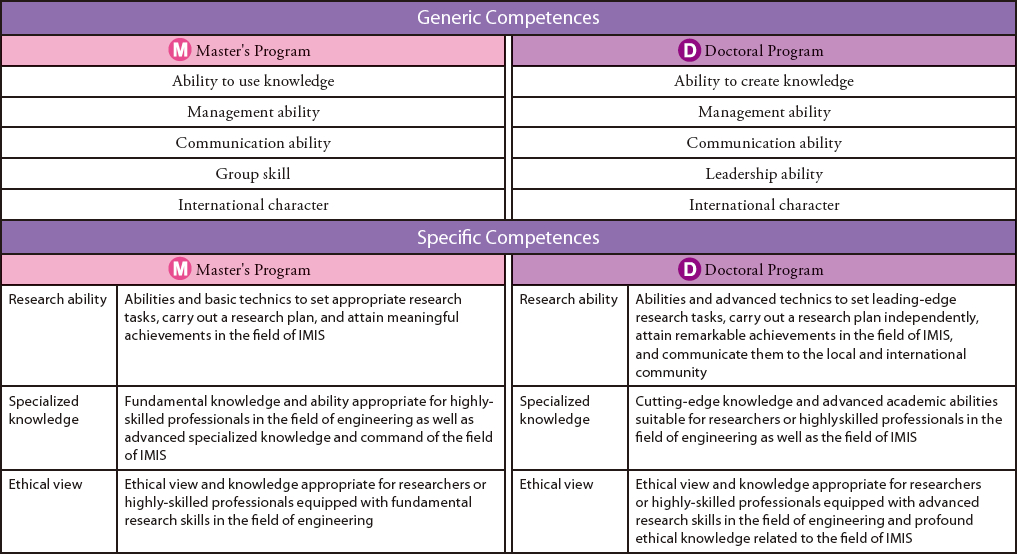
Achievement Level Assessment System (ALAS)
ALAS enables students to confirm their achievement status related to knowledge and abilities (generic/specific competences) which must be acquired and improve their learning plan with their supervisors.
